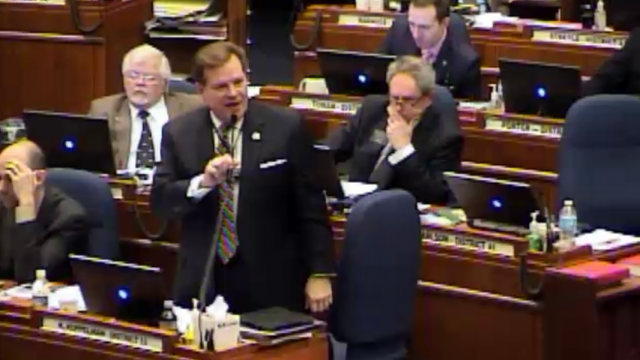State House Passes Limitations On Law Enforcement Drone Use

“Some in law enforcement felt it targeted them,” Rep. Kim Koppelman, the bill carrier, told the House floor. That statement made me chuckle a bit. I mean, if you’re concerned about cops getting too much power, who else are you supposed to “target?” I don’t think there’s any question that the law enforcement community in general has little respect for our privacy rights, seizing on new tactics and technology to tip the balance on privacy rights in their favor.
I’m frankly a little tired of sanctimonious law enforcement officials reacting with hostility to legislation aimed at protecting our rights, and affecting an attitude of expected deference from our policymakers. Cops aren’t infallible, and are as prone to greed, power grabs, and territorialism as any government bureaucrat.
I’m also tired of lawmakers who far too often give the deference those in uniform seem to take for granted. We have a civilian government for a reason.
Case in point, Rep. Pamela Anderson (D-Fargo) who said “I trust the law enforcement officials to get warrants right.” Forget that we’ve created reams of policy, and entire chapters of American jurisprudence, to oversee the exercise of police power because the historical tendency is for that power to be abused.
So what does the bill, HB1328, do?
- Cops can’t use evidence obtained through the unwarranted use of a drone in court.
- Cops can’t use information obtained through the use of a drone to get a warrant.
- Any warrant issued for using a drone must specify a) who will be using it b) who will be using it and c) for how long.
- Any warrant issued to target an individual or group of individuals must specify a) the circumstances under which the drone will be used b) what information will be gathered and c) the period for which that information will be retained.
- Drones can’t be armed
- Permits to fly a drone can’t be issued to surveill an individual or an individual’s property without permission
- Drones can’t be used to surveil people exercising their rights to free speech or assembly
There are exemptions to the law for border security patrols, exigent circumstances (i.e. to track down an armed fugitive who is fleeing), monitoring severe weather situations (flooding, etc.), and research/training.
This seems like good policy addressing in a common-sense way a new technology.




